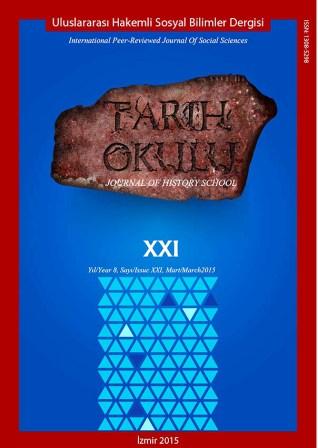TURKISH DISCOUSE PARTICLES İŞTE AND FALAN AND THEIR ENGLISH EQUIVALENTS WELL AND LIKE: A CORPUS STUDY
Author :
DOI : 10.14225/Joh673
Year-Number: 2015-XXI
Language : null
Konu : Dilbilim, Çeviri, derlem
Abstract
Keywords
Abstract
Keywords
- Aijmer, K. & Simon-Vandenbergen, A.-M. (2003). The discourse particle well and its equivalents in Swedish and Dutch. Linguistics, 41(6), 1123-61.
- Andersen, G. (2001). Pragmatic markers and sociolinguistic variation: a relevance-theoretic approach to the language of adolescents. Amsterdam: John Benjamin.
- Corpus of Comtemporary American English (COCA 1990-2008). http://www.americancorpus.org/
- Cuenca, M. (2008). Pragmatic markers in contrast: the case of well. Journal of Pragmatics 40: 1373-1391.
- Dailey-O'Cain, J. (2000). The sociolinguistic distribution of and attitudes toward focuser like and quotative like. Journal of Sociolinguistics, 4, 60–80.
- falan. (n.d.) TDK Büyük Sözlük Retrieved December 12, 2008, from http://tdkterim.gov.tr/bts/?kategori=veritbn&kelimesec=285319
- Fox Tree, J. E. (2006). Placing like in telling stories. Discourse Studies, 8, 723–743.
- Fox Tree, J. E. & Tomlinson, J. M., Jr. (2008). The rise of like in spontaneous quotations. Discourse Processes, 45, 85-102.
- Furman R. & Özyürek, A. (2007). Development of interactional discourse markers: insights from Turkish children’s and adults’ oral narratives. Journal of Pragmatics, 39, 1742-1757.
- Miller, J. & Weinert R. (1995). The function of like in dialogue. Journal of Pragmatics, 23, 365-393.
- Müller, S. (2004) ‘Well you know the type of person’: functions of ‘well’ in the speech of American and German students. Journal of Pragmatics, 36, 1157–1182.
- Özbek, N. (1998). ‘yani, İşte, şey, ya: Interactional markers of Turkish’. Proceedings of the Ninth Interactional Conference on Turkish Linguistics, August 12-14, Lincoln College, Oxford.
- Romaine, S. & Lange, D. (1991). The use of like as a marker of reported speech and thought: a case of grammaticalization in progress. American Speech, 63, 227-279.
- Schourup, L. C. (1985). Common discourse particles in English conversation. New York: Garland Publishing, Inc.
- Siegel, M.E.A. (2002). Like: the discourse particle and semantics. Journal of Semantics 19, 35-71.
- Underhill, R. (1988). Like is, like, focus. American Speech 63, 234–246.
- Yılmaz, E. (2004). A pragmatic analysis of Turkish discourse particles: yani, işte and şey. Unpublished PhD Thesis, METU, Ankara.
